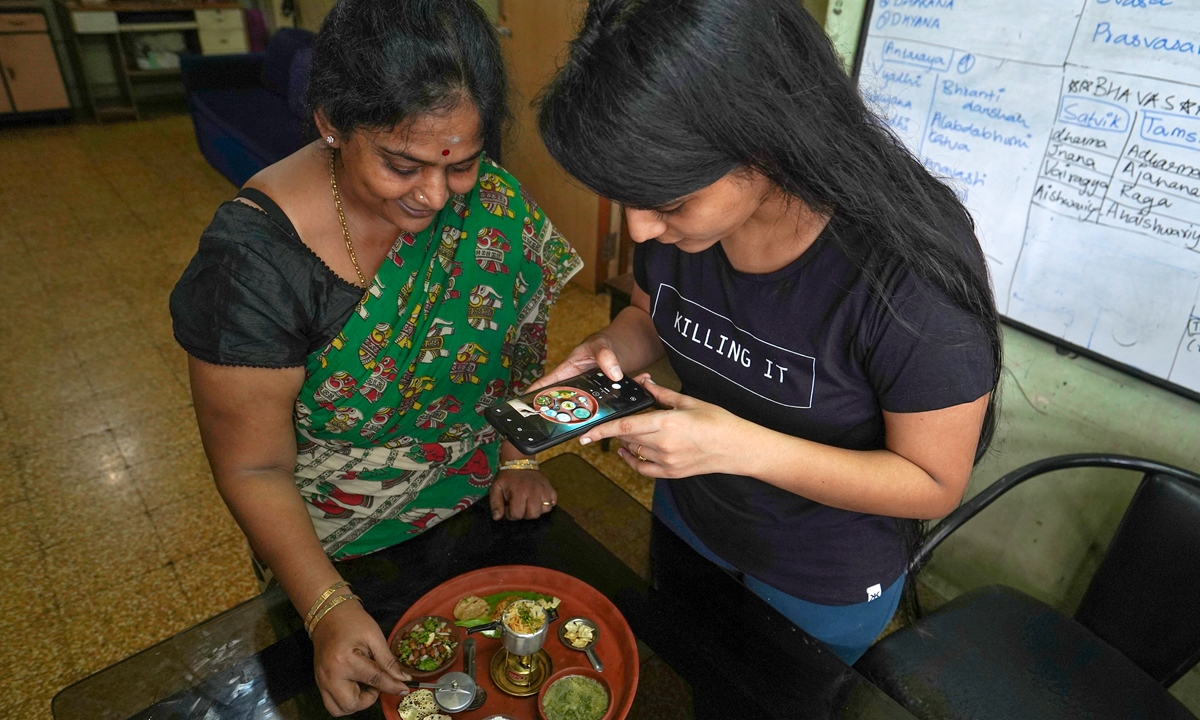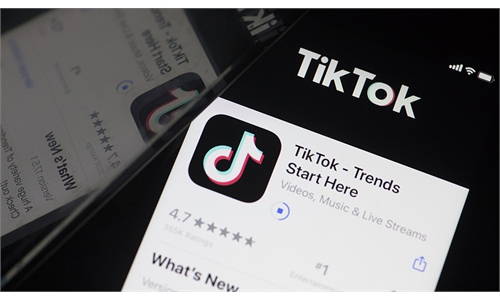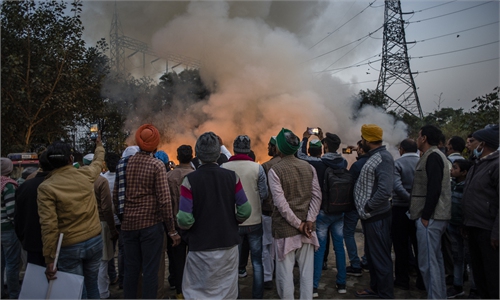India’s banning 59 Chinese apps is abnormal: Chinese experts
Chinese market watchers say India's permanent ban of 59 Chinese apps including TikTok and WeChat is 'proof of allegiance' to US.

Two women who often post videos on video-sharing app TikTok, shoot a video on a miniature cooking inside their house in Mumbai, India on July 1. Photo: VCG
Chinese market watchers said India's permanent ban of 59 Chinese apps including TikTok and WeChat is "proof of allegiance" to the US. The comment came after India's ministry of electronics and information technology issued an updated notice announcing a permanent ban on Chinese apps, and the permanent ban will take effect in June.
Reuters reported on Monday that the Indian government "was not satisfied" with the responses or explanations given by the Chinese companies on compliance with Indian privacy and security requirements. The Indian government released the high-profile notice seven months ago.
"Hence, the ban for these 59 apps is permanent now," the Times of India reported. It said the government notice was issued last week.
This is "proof of allegiance" to the US, and it is also an act of irrational revenge following a series of crackdowns on Chinese companies last year, Qian Feng, director of the research department at the National Strategy Institute at Tsinghua University, told the Global Times.
India is taking revenge on China, and it is also setting a bad example for the world to take revenge on China, Qian said. The move is to satisfy the needs of related interest groups in India by taking a hardline position against China, he said.
The ban is a sheer act of discrimination in the guise of national security, Richard Ma, an internet industry practitioner who just returned from working in India, told the Global Times on Tuesday.
"What we see is unfair competition in the name of national security. It is an utterly selfish move, and it has significantly infringed upon Chinese companies' normal operations in India," Ma said. "It also takes away the freedom of the Indian people over the use of the apps."
The latest move by India came as China and India on Sunday held the ninth round of the Corps Commander Level Meeting, in which both sides agreed to push for an early disengagement of frontline troops and continue to stabilize and control the border situation, China's defense ministry said on Monday.
TikTok, WeChat and UC Web declined to comment when reached by the Global Times.
Since June last year, the Indian government has taken a series of crackdowns against Chinese apps.
On June 29, India banned 59 Chinese apps including TikTok, WeChat and Weibo. In September, India banned 118 Chinese mobile phone apps including Baidu Search. In November, India announced plans to ban 43 Chinese background mobile apps including AliExpress and Dingding.
As the ban is set to be implemented in June, Qian said the time gap shows that India is observing the reactions of different sides, but regarding the results of crackdowns last year, there is still a question mark to see if they will be implemented fully.
Short video app TikTok remains the second-most popular social media network in India, despite the government banning it last June.
According to Digital Trends-India, December 2020 published by SimilarWeb, the China-based app's monthly active users increased 100 percent between December 2018 and October 2020. It has surpassed Facebook-owned Instagram, according to Indian media platform inc42.com on January 20.
The Global Times reported in July last year that Indian app users and online influencers were baffled and hurt by the bans of TikTok and WeChat.
Zhao Lijian, a spokesperson of Ministry of Foreign Affairs, said in November that India used the so-called importance of national security as an excuse to ban mobile apps with a Chinese background, and the practices obviously violate market principles and WTO rules.



